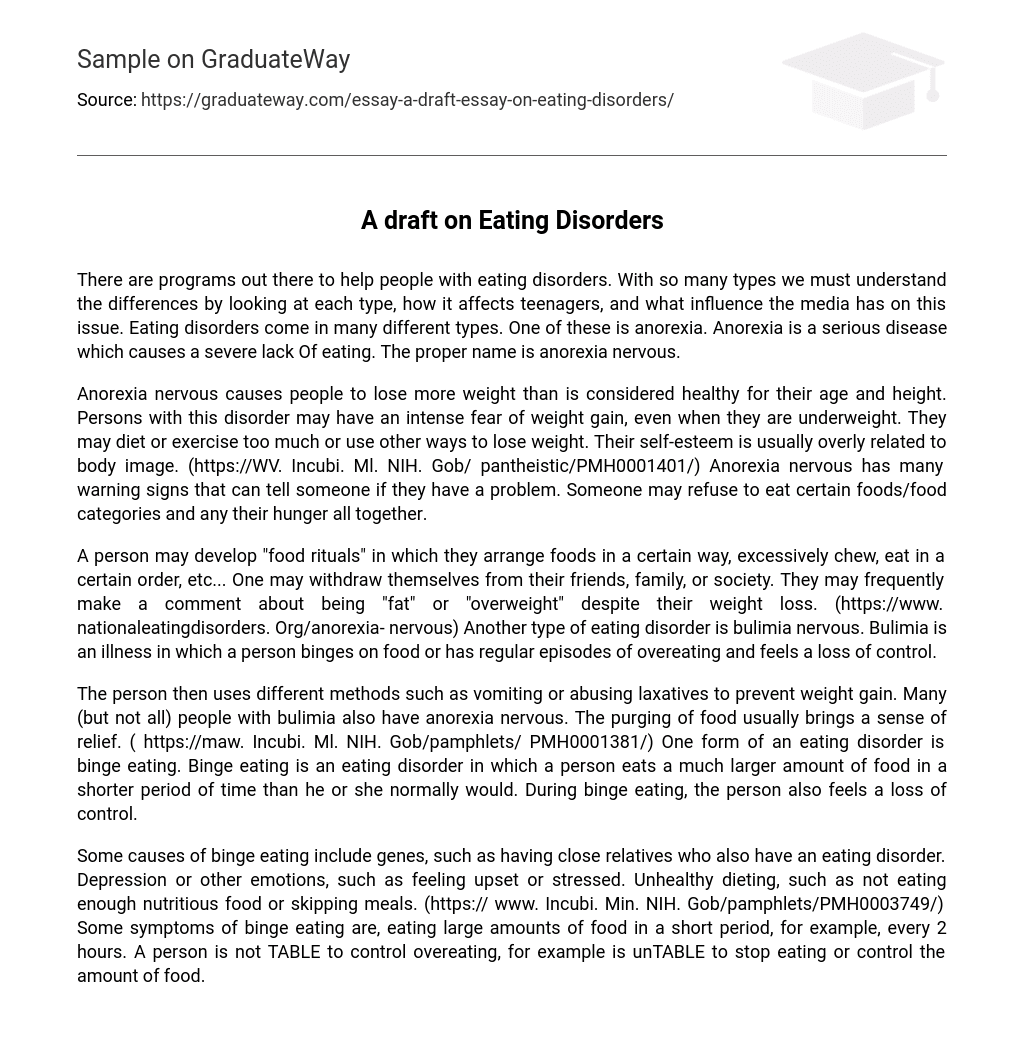Understanding the differences between various programs is crucial in helping individuals with eating disorders, as well as comprehending their impact on teenagers and the role of media. Eating disorders, such as anorexia (also known as anorexia nervosa), involve significant food intake restriction and can manifest in various ways.
According to a source from https://WV.Incubi.Ml.NIH.Gob/pantheistic/PMH0001401/, Anorexia nervosa is characterized by individuals experiencing significant weight loss that is unhealthy for their age and height. These individuals may have an intense fear of gaining weight, even if they are already underweight, and may resort to extreme dieting, excessive exercise, or other methods of losing weight. Their body image often plays a crucial role in determining their self-esteem. Anorexia nervosa displays various warning signs that can indicate the presence of a problem, including avoiding specific foods or entire food groups and suppressing hunger completely.
According to the source https://www.nationaleatingdisorders.org/anorexia-nervosa, individuals with anorexia may develop certain “food rituals” such as arranging foods in a specific way, excessively chewing, or eating in a particular order. They might also isolate themselves from friends, family, or society. Moreover, it is common for them to repeatedly express concerns about being “fat” or “overweight” even after losing weight.
The source mentioned another eating disorder called bulimia nervosa. This disorder involves regular episodes of overeating or bingeing on food accompanied by a feeling of lack of control.
The individual uses different techniques to prevent weight gain, such as vomiting or misusing laxatives. It is important to mention that not all individuals with bulimia also have anorexia nervosa. Purging food usually brings a feeling of relief. On the other hand, binge eating entails consuming much more food than usual in a shorter timeframe. During these episodes, the person also feels a lack of control.
The causes of binge eating can be attributed to genetic factors, such as having close relatives with an eating disorder, and emotional factors like depression or feelings of upset/stress. Unhealthy dieting behaviors, including insufficient consumption of nutritious food or meal skipping, can also contribute to binge eating (source: https://www.incubi.min.nih.gob/pamphlets/PMH0003749/).
Symptoms of binge eating include the consumption of large amounts of food within a short time frame, typically every 2 hours. Those who engage in binge eating often struggle with controlling their eating habits and are unable to manage the quantity of food they consume.





